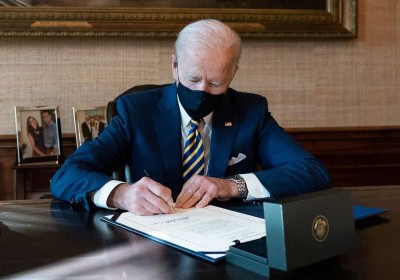Washington, Feb 1 : A group of 10 Republican Senators will meet US President Joe Biden on Monday at the White House to discuss their Covid-19 relief proposal, Press Secretary Jen Psaki has confirmed.
“As has been widely reported, the President received a letter today from 10 Republican Senators asking to meet with him to discuss their ideas about the actions needed to address these crises,” Psaki said in a statement on Sunday night.
“With the virus posing a grave threat to the country, and economic conditions grim for so many, the need for action is urgent, and the scale of what must be done is large,” Psaki said.
The Republican group comprises Senators Susan Collins (Maine), Lisa Murkowski (Alaska), Bill Cassidy (Louisiana), Mitt Romney (Utah), Rob Portman (Ohio), Shelley Moore Capito (West Virginia), Todd Young (Indiana), Jerry Moran (Kansas), Mike Rounds (South Dakota) and Thom Tillis (North Carolina).
Psaki’s statement came after the Senators, led by Collins, on Sunday proposed an alternative Covid-19 relief framework that they believe is capable of garnering bipartisan support.
“In the spirit of bipartisanship and unity, we have developed a Covid-19 relief framework that builds on prior Covid assistance laws, all of which passed with bipartisan support,” the Senators wrote in the letter to Biden.
“Our proposal reflects many of your stated priorities, and with your support, we believe that this plan could be approved quickly by Congress with bipartisan support,” they wrote.
The $600 billion Republican proposal would include $1,000 checks, more money for vaccines, extension of unemployment benefits, nutrition assistance, small business aid and money for schools and childcare.
Biden has unveiled a $1.9 trillion Covid-19 relief proposal named ‘American Rescue Plan’, which has drawn opposition from a growing number of congressional Republicans.
It is unclear whether the Biden administration would secure enough votes for a new massive relief package.
The package includes over $400 billion to combat the pandemic directly such as more funding for testing and vaccine distribution; roughly $1 trillion in direct relief to households; and over $400 billion for hard-hit small businesses and communities.
Disclaimer: This story is auto-generated from IANS service.

